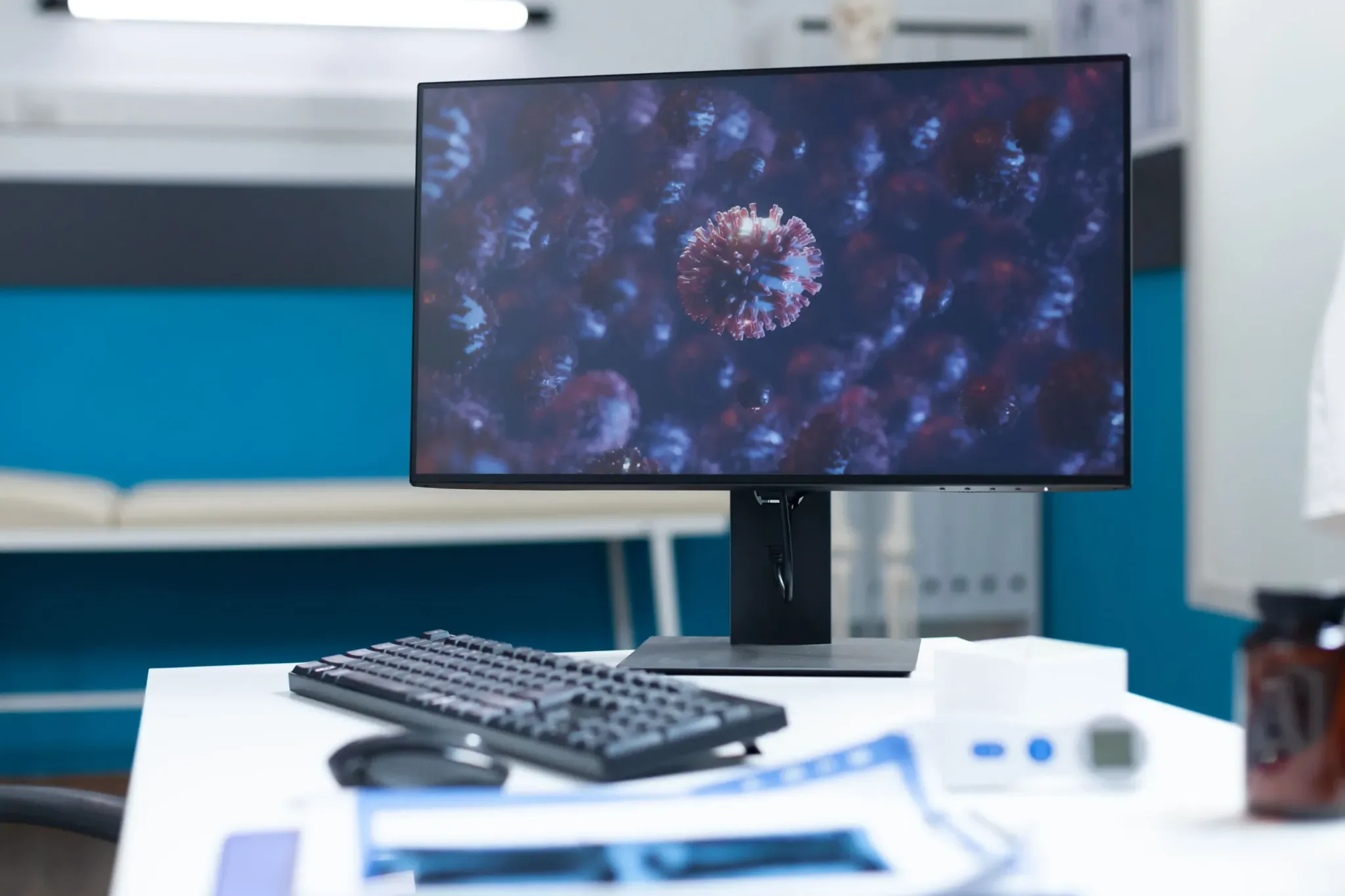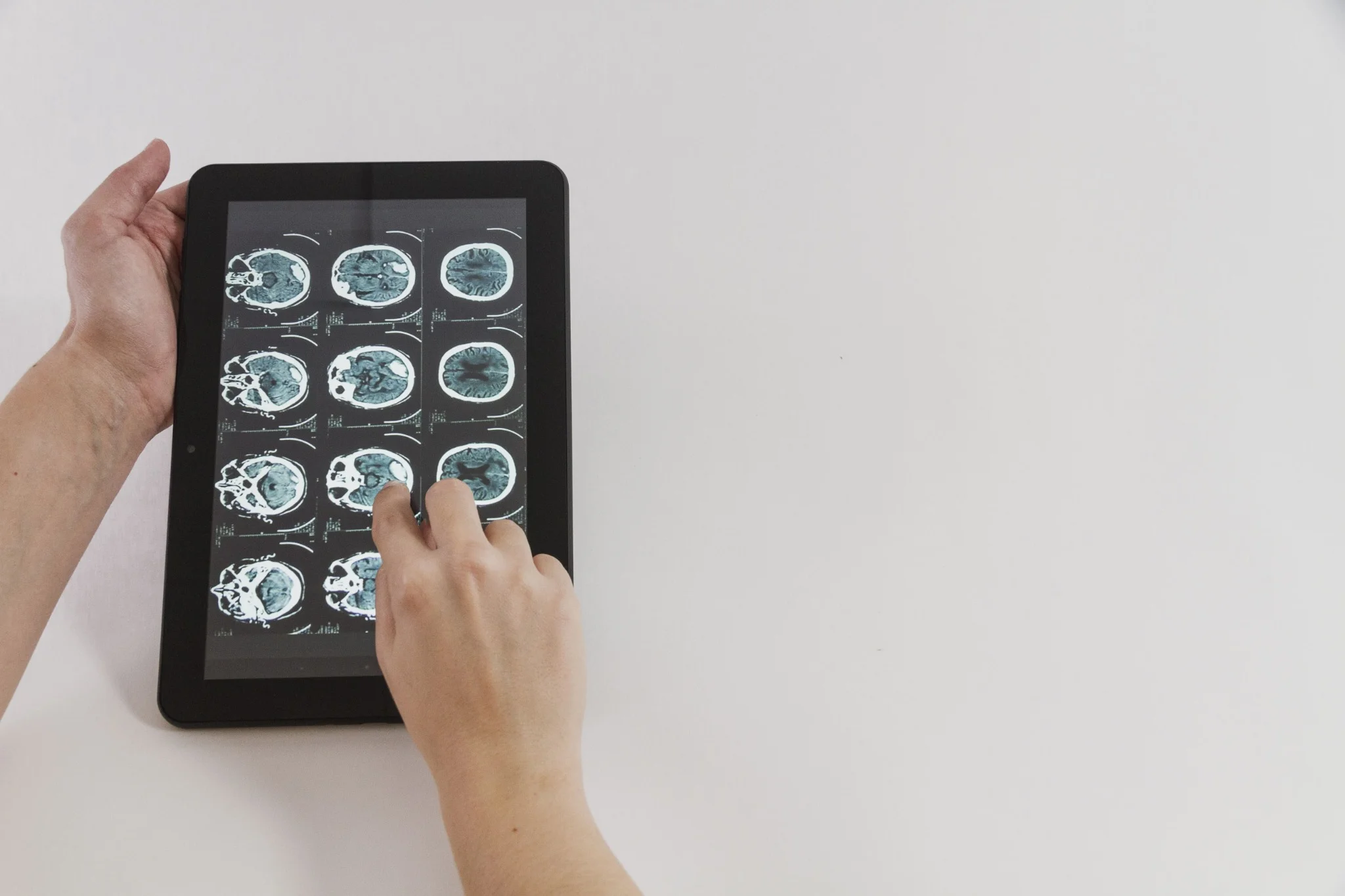Anti CCP Test
Also known as: Anti-CCP Antibody (Cyclic Citrullinated Peptide Antibody) Test
Anti-CCP Antibody (Cyclic Citrullinated Peptide Antibody) Test Details in Brief
| Also Known As | CCP Antibody, Cyclic Citrullinated Peptide Antibody, ACPA (Anti-Citrullinated Protein Antibody), Anti-CCP |
|---|---|
| Purpose | Helps diagnose rheumatoid arthritis and differentiate it from other autoimmune disorders. |
| Preparation | High biotin doses (>5 mg/day) should be avoided at least 8 hours before blood collection. |
| Fasting | Not Required |
| Reporting Time | After 6 hours |
| Cost | 1,750 |
What Is an Anti-CCP Antibody (Cyclic Citrullinated Peptide Antibody) Test?
An Anti-CCP antibody test is a blood test that detects specific autoantibodies called anti-cyclic citrullinated peptide antibodies in your bloodstream. These antibodies are produced when your immune system mistakenly attacks your body's own tissues.
This test uses a blood sample drawn from a vein in your arm. It primarily helps diagnose rheumatoid arthritis, an autoimmune condition that causes joint inflammation and damage.
What Does the Anti-CCP Antibody (Cyclic Citrullinated Peptide Antibody) Test Measure?
The Anti-CCP test measures specific autoantibodies that provide valuable insights about your immune system:
- Autoantibodies targeting joint proteins: They detect antibodies that mistakenly attack citrullinated peptides, proteins naturally found in your joints.
- Immune system activity: Shows whether your immune system is attacking your own healthy tissues.
- Rheumatoid arthritis markers: They indicate the presence of specific antibodies strongly linked to rheumatoid arthritis.
- Disease progression indicators: Helps predict the severity and course of rheumatoid arthritis.
Anti-CCP Antibody (Cyclic Citrullinated Peptide Antibody) Test: Who Needs It and Why It's Done
What Symptoms May Call for an Anti-CCP Antibody (Cyclic Citrullinated Peptide Antibody) Test?
Your doctor may recommend this test if you experience symptoms that suggest inflammatory arthritis:
- Joint pain, stiffness, and swelling affecting multiple joints symmetrically
- Morning stiffness lasting more than 30 minutes
- Persistent fatigue and a general feeling of being unwell
- Low-grade fever without an obvious cause
- Loss of appetite
- Firm lumps (rheumatoid nodules) under the skin, especially on the arms.
Who Should Get an Anti-CCP Antibody (Cyclic Citrullinated Peptide Antibody) Test?
The Anti-CCP test is recommended for specific groups of people:
- Individuals with joint symptoms: People experiencing persistent joint pain, swelling, or stiffness.
- High-risk individuals: Those with a family history of rheumatoid arthritis showing early symptoms.
- Patients with undiagnosed arthritis: When other tests haven't clearly identified the type of arthritis.
- People needing differential diagnosis: To distinguish rheumatoid arthritis from other autoimmune conditions.
Why Is an Anti-CCP Antibody (Cyclic Citrullinated Peptide Antibody) Test Done?
The Anti-CCP test helps confirm a diagnosis of rheumatoid arthritis, often in its early stages, and assists doctors in predicting disease severity and planning appropriate treatment strategies.
Importance of an Anti-CCP Antibody (Cyclic Citrullinated Peptide Antibody) Test
The Anti-CCP test plays a crucial role in rheumatoid arthritis diagnosis and management. It offers high specificity for rheumatoid arthritis, meaning positive results strongly indicate the presence of this condition rather than other joint disorders.
Early detection is particularly valuable because anti-CCP antibodies can appear years before symptoms develop. This allows for prompt treatment initiation, which is essential for preventing irreversible joint damage and maintaining quality of life. Additionally, the test provides prognostic information, as higher antibody levels often correlate with more aggressive disease progression.
Anti-CCP Antibody (Cyclic Citrullinated Peptide Antibody) Test Booking & Reports – Metropolis Healthcare India
How to Book an Anti-CCP Antibody (Cyclic Citrullinated Peptide Antibody) Test?
- Simple Online Booking
Booking can be done through the Metropolis Healthcare App or website. Select 'Anti-CCP Antibody (Cyclic Citrullinated Peptide Antibody) Test', choose a convenient time slot, and provide your address for a blood test at home. You can also visit the nearest Metropolis Lab if you prefer to give the sample directly at the lab. - Safe Home Sample Collection
Our trained phlebotomists ensure the timely collection of your sample while strictly following all safety and hygiene protocols. - Sample Tracking Updates
Stay informed at every step. From collection to testing, you can track your sample directly through the Metropolis Healthcare website. - Accurate Laboratory Testing
Your sample is processed at our NABL- & CAP-accredited laboratories, where expert technicians ensure accurate results. - Quick & Easy Reports
Receive your test reports promptly via email, WhatsApp, or by downloading them directly from the Metropolis Healthcare website or app.
Is Home Sample Collection for the Anti-CCP Antibody (Cyclic Citrullinated Peptide Antibody) Test Available Near You?
Yes, at Metropolis Healthcare, our home sample collection service brings the convenience of Anti-CCP testing directly to your doorstep across multiple cities. Our trained phlebotomists visit your home at your preferred time, following strict safety protocols during sample collection. This service eliminates the need to travel to a lab, making it especially helpful for busy schedules or mobility concerns.
How Long Does It Take to Get an Anti-CCP Antibody (Cyclic Citrullinated Peptide Antibody) Test Report?
Reports are usually available within 6 hours once the sample reaches the lab.
Where Can I See or Get Anti-CCP Antibody (Cyclic Citrullinated Peptide Antibody) Test Results?
Test results from Metropolis Healthcare can be accessed through multiple convenient channels. You can log in to the Metropolis website using your credentials or use the Metropolis Healthcare App to view and download your reports. Additionally, test reports are sent via email or WhatsApp, and you also have the option to collect a physical copy directly from the lab.
Interpreting Anti-CCP Antibody (Cyclic Citrullinated Peptide Antibody) Test Results
What Your Anti-CCP Antibody (Cyclic Citrullinated Peptide Antibody) Test Results May Indicate
The following table helps you understand what different Anti-CCP antibody levels mean for your health:
|
Parameter |
Reference Range |
High Values May Indicate |
Low/Negative Values May Indicate |
|
CCP Antibody |
Negative: < 17 U/mL |
Rheumatoid arthritis, other inflammatory arthritis conditions, systemic lupus erythematosus |
Normal immune response, low disease activity, or remission in diagnosed rheumatoid arthritis |
Conditions that May Affect Anti-CCP Antibody (Cyclic Citrullinated Peptide Antibody) Test Accuracy
Several factors can influence your Anti-CCP test results and should be discussed with your doctor:
- Biotin supplements: High doses (more than 5 mg per day) can interfere with test results if taken within 8 hours of blood collection.
- Other medications: Some immunosuppressive medicines may affect antibody levels.
- Recent illness or stress: Can temporarily alter immune system activity.
- Sample quality issues: Haemolysed, lipemic, or clotted samples may affect accuracy.
- Laboratory variations: Different testing methods may produce slightly different reference ranges.
How Is an Anti-CCP Antibody (Cyclic Citrullinated Peptide Antibody) Test Done?
The Anti-CCP test involves a simple blood collection procedure performed by trained healthcare professionals:
- The phlebotomist cleans your arm, typically inside the elbow, with an antiseptic wipe.
- An elastic tourniquet is tied around your upper arm to make the veins more visible.
- A sterile needle is inserted into a vein to collect approximately 3 ml of blood into a gel vacutainer.
- The needle is removed, and a bandage is applied to prevent bleeding.
- The blood sample is processed using the electrochemiluminescence immunoassay (ECLIA) method.
- The antibody levels are measured and compared against reference ranges.
How Should You Prepare for an Anti-CCP Antibody (Cyclic Citrullinated Peptide Antibody) Test?
Preparing for your Anti-CCP test is straightforward and requires minimal preparation:
- No fasting required: You can eat and drink normally before the test.
- Avoid high-dose biotin: Stop taking biotin supplements exceeding 5 mg per day at least 8 hours before blood collection.
- Inform about medications: Tell your doctor about all prescription medicines, supplements, and herbal remedies you're taking.
- Wear comfortable clothing: Choose clothing that allows easy access to your arm for blood collection.
- Stay hydrated: Drink adequate water to make blood collection easier.
Diseases that an Anti-CCP Antibody (Cyclic Citrullinated Peptide Antibody) Test Can Help Detect
The Anti-CCP test is primarily used to diagnose and monitor specific autoimmune conditions:
- Rheumatoid arthritis: The primary condition associated with positive anti-CCP antibodies.
- Early-stage rheumatoid arthritis: Can be detected before symptoms fully develop
- Systemic lupus erythematosus (S: May show elevated anti-CCP levels in some cases.
- Other inflammatory arthritis conditions: Various autoimmune joint disorders
- Autoimmune-related joint inflammation: Conditions involving immune system dysfunction.
Anti-CCP Antibody (Cyclic Citrullinated Peptide Antibody) Test/Packages that You Can Book With Metropolis Healthcare
Metropolis Healthcare offers comprehensive rheumatoid arthritis testing packages that include the Anti-CCP test along with other relevant investigations:
|
Test/Package Name |
Purpose/Highlights |
|
Basic screening package for rheumatoid arthritis diagnosis. |
|
|
Comprehensive panel for detailed rheumatoid arthritis assessment. |
|
|
Advanced testing package for complete rheumatoid arthritis evaluation. |
Anti-CCP Antibody (Cyclic Citrullinated Peptide Antibody) Test Prices in Different Cities
The Anti-CCP test price may vary depending on your location. Here's a table showing the approximate prices in different cities.
|
City |
Price (₹) |
|
₹900 - ₹2500 |
|
|
₹900 - ₹2500 |
|
|
₹900 - ₹2500 |
|
|
₹900 - ₹2500 |
|
|
₹900 - ₹2500 |
|
|
₹900 - ₹2500 |
Reference:
-
Niewold TB, Harrison MJ, Paget SA. Anti-CCP antibody testing as a diagnostic and prognostic tool in rheumatoid arthritis. QJM. 2007 Apr;100(4):193-201.
-
Braschi E, Shojania K, Allan GM. Anti-CCP: a truly helpful rheumatoid arthritis test?Can Fam Physician. 2016 Mar;62(3):234.
-
Abdul Wahab A, Mohammad M, Rahman MM, Mohamed Said MS. Anti-cyclic citrullinated peptide antibody is a good indicator for the diagnosis of rheumatoid arthritis. Pak J Med Sci. 2013 May;29(3):773-7.
Anti-CCP Antibody (Cyclic Citrullinated Peptide Antibody) Test Price
Metropolis Healthcare is a leading diagnostics centre and pathology lab in India equipped with the latest state-of-the-art technologies that provides the Anti-CCP Antibody (Cyclic Citrullinated Peptide Antibody) Test with a clear pricing structure.
The Anti-CCP Antibody (Cyclic Citrullinated Peptide Antibody) Test Price in Mumbai is ₹ 1,750 .
We are committed to deliver accurate and quality results from the best labs in India with complete transparency regarding test cost and turnaround time. No matter where you are, we strive to offer patients high-quality service that is affordable and accessible.
Frequently Asked Questions
There is no specific best time for the Anti-CCP test. Your antibody levels remain stable throughout the day, so you can take the test at any convenient time without affecting the accuracy of your test results.
No, fasting is not required for the Anti-CCP test. You can eat and drink normally before the test unless your doctor has ordered other tests simultaneously that require fasting.
Severe dehydration is unlikely to alter Anti-CCP test results. However, staying well-hydrated makes blood collection easier for the technician and ensures optimal sample quality for accurate testing.
No special dietary preparation is needed. However, avoid high-dose biotin supplements (> 5 mg/day) for at least 8 hours before testing, and inform your doctor about all medications and supplements you're taking.
A healthcare professional cleans your arm, ties an elastic band around your upper arm, inserts a sterile needle into a vein, and collects blood into a vial. Then the needle is removed and a bandage is applied. The process is quick and involves minimal discomfort.
The risks are minimal and similar to any routine blood test. You may experience slight pain during needle insertion, minor bruising at the site, or, rarely, light-headedness or minor infection risk.
Normal levels are considered negative when results are less than 17 U/mL. Positive results are 17 U/mL or higher. Always consult your doctor for the interpretation of your test results.
The Anti-CCP test is also known as the CCP Antibody test, the Cyclic Citrullinated Peptide Antibody test, the ACPA (Anti-Citrullinated Protein Antibody) or simply the Anti-CCP test.
Ratings & Reviews (0)
Why Metropolis?
Metropolis has a team of 200 senior pathologists and over 2000 technicians delivering diagnostic solutions in the areas of routine, semi specialty and super specialty domains like Oncology, Neurology, Gynaecology, Nephrology and many more.
We offer a comprehensive range of 4000+ clinical laboratory tests and profiles, which are used for prediction, early detection, diagnostic screening, confirmation and/or monitoring of the disease.





















 WhatsApp
WhatsApp